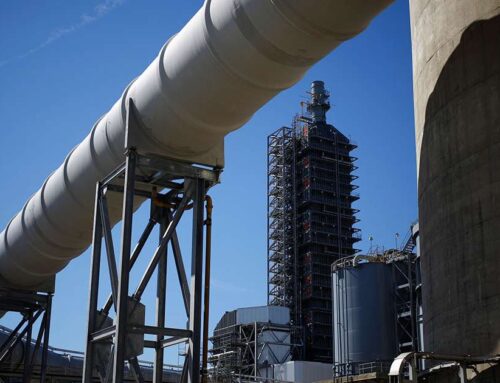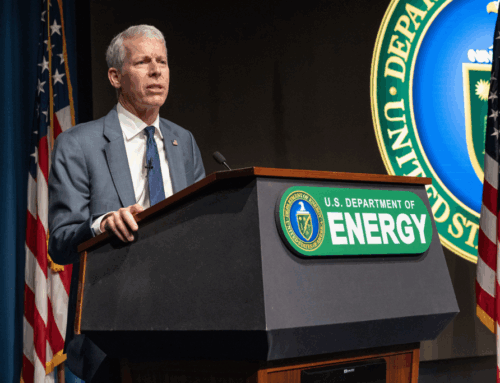Ethereum’s Fusaka Upgrade Signals New Era for Value Accrual: Fidelity Digital Assets
November 20, 2025
Ethereum Blockhain’s Fusaka Upgrade Signals New Era for Value Accrual: Fidelity Digital Assets
The upgrade marks a sharper strategic turn for the blockchain, aligning protocol development with economic intent and strengthening the case for ether.
By Will Canny, AI Boost|Edited by Sheldon Reback
Nov 20, 2025, 4:18 p.m.

- Fidelity Digital Assets said Fusaka reflects Ethereum’s most cohesive, value-driven roadmap to date.
- The upgrade reinforces layer-1 scaling and could reshape layer-2 economics in ways that benefit ether holders.
- Investors should watch the trade-offs as the blockchain leans more directly into monetization and pricing power, the report said.
Fidelity Digital Assets said the Ethereum blockchain’s Fusaka upgrade marks a decisive shift toward a more strategically aligned and economically coherent roadmap.
Fusaka, a blend of the names Fulu and Osaka, comprises two simultaneous changes to Ethereum’s consensus and execution layers, and is expected to happen in December.
STORY CONTINUES BELOW
For years, Ethereum’s development path has been shaped by a wide, and sometimes competing, set of stakeholder priorities, Fidelity Digital Assets said in the Thursday report.
Fusaka represents a break from that pattern, analyst Max Wadington wrote, consolidating around a narrower set of goals that more directly reinforce scalability, usability and, increasingly, value accrual to ether ETH$2,825.64 itself.
The analyst framed this moment as a maturation in Ethereum’s governance. A move from loosely coordinated upgrades to a roadmap guided by clearer economic intent.
Wadington noted that while value accrual isn’t explicitly named as a core objective, it has become the shared incentive uniting developers, users and investors. That alignment is now showing up in protocol-level decisions, particularly in the renewed emphasis on layer-1 scaling, which could strengthen pricing power and expand the platform’s revenue-generating potential.
The report also highlighted early signs of a shifting layer-2 landscape, one that may eventually push more economic activity, and thus more revenue, back to the base layer.
That dynamic could reinforce ether’s position as a cash-flowing asset, but the report cautioned that these moves come with trade-offs, especially around how aggressively the network prioritizes monetization without dampening broader adoption.
A layer-1 network is the base layer, or the underlying infrastructure of a blockchain. Layer 2 refers to a set of off-chain systems or separate blockchains built on top of layer 1s.
Fusaka is less a one-off technical upgrade than a signal of Ethereum’s next phase, a more focused, economically sustainable platform asserting its pricing power and tightening incentive alignment across its ecosystem, the report added.
Read more: The Protocol: Ethereum Developers Target December for Fusaka Hard Fork
AI Disclaimer: Parts of this article were generated with the assistance from AI tools and reviewed by our editorial team to ensure accuracy and adherence to our standards. For more information, see CoinDesk’s full AI Policy.
More For You
Nov 14, 2025

What to know:
- As of October 2025, GoPlus has generated $4.7M in total revenue across its product lines. The GoPlus App is the primary revenue driver, contributing $2.5M (approx. 53%), followed by the SafeToken Protocol at $1.7M.
- GoPlus Intelligence’s Token Security API averaged 717 million monthly calls year-to-date in 2025 , with a peak of nearly 1 billion calls in February 2025. Total blockchain-level requests, including transaction simulations, averaged an additional 350 million per month.
- Since its January 2025 launch , the $GPS token has registered over $5B in total spot volume and $10B in derivatives volume in 2025. Monthly spot volume peaked in March 2025 at over $1.1B , while derivatives volume peaked the same month at over $4B.
More For You
By Margaux Nijkerk, AI Boost|Edited by Jamie Crawley
4 hours ago

The feature issues unique virtual account numbers, allowing users to receive direct deposits, like payroll payments, straight into the World App.
What to know:
- World App has begun piloting virtual bank accounts, giving its users a new way to plug their everyday finances directly into the crypto economy.
- The feature issues unique virtual account numbers, allowing users to receive direct deposits, like payroll payments, without employers interacting with blockchain rails or worrying about gas fees.
- The pilot is commencing in the U.S. for the first phase, with expansion to additional countries coming in future phases.
-
Back to menu
Prices
-
Back to menu
-
Back to menu
Indices -
Back to menu
Research
-
Back to menu
Consensus 2026 -
Back to menu
Sponsored
-
Back to menu
Videos -
Back to menu
-
Back to menu
-
Back to menu
Webinars
Select Language
Search
RECENT PRESS RELEASES
Related Post












